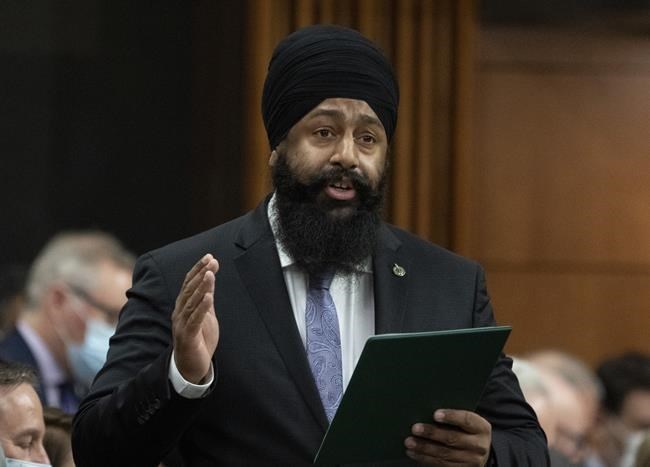OTTAWA — Opposition critics are still skeptical the federal government will be able to quickly plow through the massive backlog in immigration applications after Trudeau's Liberals promised to put $85 million toward that goal.
The pandemic put serious pressure on the immigration system, which was further stressed by the government's efforts to bring Afghan refugees to Canada after their country fell to the Taliban.
The immigration minister has pointed to those two factors as the reasons applications have piled up.
The government's fiscal update shows the government plans to put $85 million toward processing those permanent resident and temporary resident applications in 2022.
"We are adopting a modern, digital immigration system that is welcoming people faster and we are on pace to welcome the most newcomers in Canada’s history this year," Immigration Minister Sean Fraser said in a statement Wednesday.
"The significant investments in ... (the) Economic Fiscal Update build on this work. Concretely, this means that things will move faster, people will be able to apply online, applicants will face fewer barriers, and aspiring Canadians can start contributing to their new communities more quickly upon arrival."
But without a plan to accompany the new funds, Conservative critic Jasraj Singh Hallan said the money promised in the fiscal update Tuesday won't shrink the backlog that he says has swelled to 1.8 million applications.
"We keep seeing the federal government throwing such and such money as this problem, but they have no plan, or no real plan, to execute," Hallan said Wednesday in an interview.
The fact that the money appears as a one-time cash injection has also raised eyebrows among the opposition.
"It goes to show that this Liberal government is not serious about any long-term commitment to making immigration better," Hallan said.
The one-time nature of the funds is also concerning to NDP critic Jenny Kwan.
The NDP had called for more resources to be dedicated to the backlog, but the government did not move quickly enough to put those funds in place, she said.
"We were already seeing the backlog delays last year, and as it stands right now the severity of the backlog would take at least three years to catch up to pre-pandemic levels," Kwan said in an interview.
In the fiscal update, the government said the average number of applications processed on a monthly basis in 2021 is quickly catching up to pre-pandemic levels, but did not explain how long it would take to whittle down the backlog.
All immigration streams have been impacted by the delays at Immigration, Refugees and Citizenship Canada, Kwan said, and she's concerned the money will only be used to process new applications.
For example, people who require renewal of their permanent resident status are also in desperate need, she said, since they can't get health-care access or renew their drivers' licence without it.
When it announced the new funds, the government said it would also speed up the process to citizenship for many permanent residents.
Boosting immigration is a key pillar in Canada's plan to help fill the ongoing labour gap, and Trudeau's Liberals are set to meet their ambitious target to make 401,000 people permanent residents this year.
This report by The Canadian Press was first published Dec. 15, 2021.
Laura Osman, The Canadian Press




